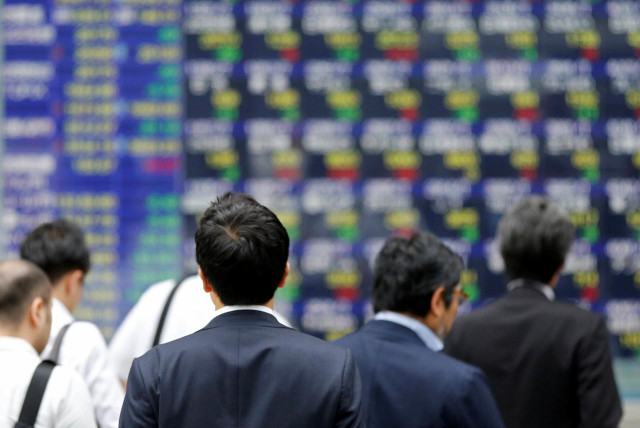China stimulus hints, slowing spread of virus lift global stocks
Sentiment lifted by report Beijing is considering cash injections or mergers to bail out airlines hit by the virus

Sentiment lifted by report Beijing is considering cash injections or mergers to bail out airlines hit by the virus. PHOTO: REUTERS
China posted the lowest daily rise in new coronavirus cases since January 29, helping to lift the offshore-traded yuan to two-week highs against the dollar and pushing the yen, generally sought after in times of trouble, 0.5% lower.
Many view Chinese data on the virus with scepticism, but sentiment was lifted by a Bloomberg report that Beijing was considering cash injections or mergers to bail out airlines hit by the virus.
Those steps would come after this week's cut in the medium-term lending rate, which has fed expectations for a reduction in the benchmark loan prime rate.
A pan-European equity index rose 0.6% to new record highs while futures for the US S&P 500 and Dow Jones were up 0.25%. Nasdaq futures rose 0.4%.
Earlier, MSCI's index of Asian shares outside Japan rose 0.5%. Japan's Nikkei benchmark gained almost 1%, helped by the yen retreat.
Edward Park, Chief Investment Officer at Brooks Macdonald, cited President Xi Jinping's latest commitment to meeting 2020 growth targets. "This in itself implies there will be more fiscal and monetary stimulus," Park said. "That's the real carrot for markets today."
Tuesday's US Empire manufacturing survey also reassured investors the world's biggest economy was in good shape, he said. That tempered worries caused by Apple's warning it might miss sales targets due to pressure on supply chains.
Market fears still kept gold trading above $1,600 an ounce and US 10-year Treasury yields some 35 basis points below where they started 2020.
"There is some nervousness that economic data outside the United States is not amazing," Park said.
China, the world's second-largest economy, is struggling to get manufacturing back online after severe travel restrictions were imposed to contain the coronavirus. Japanese exports fell for the 14th straight month in January, data showed.


















COMMENTS
Comments are moderated and generally will be posted if they are on-topic and not abusive.
For more information, please see our Comments FAQ